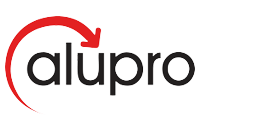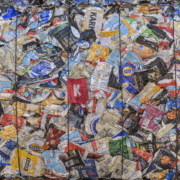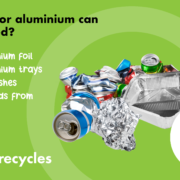The implications of late data submissions on the PRN market
In this article, Martin Hyde, sustainability and public affairs manager at Alupro, explains the inextricable link between PRN demand and fluctuating prices, and discusses why late data submissions have such an adverse impact on the market.
The PRN system has operated as a closed, value-driven market since the initial introduction of the Producer Responsibility (Packaging Waste) regulations back in 1997. Its purpose is to provide producers paying their packaging compliance obligation fair access to recycling evidence, while also ensuring that fees paid are reflective of the cost and efficiency of recycling packaging waste.
As PRNs are traded openly between reprocessors, producers and compliance schemes, the cost of a PRN will resultingly fluctuate based on the cost of reprocessing (including preparation for recycling and end market availability) as well as the quantity of recyclate being accepted for reprocessing.
After calculating the volume of each packaging material type handled throughout the calendar year, each producer must submit their obligation to the environmental regulator. This figure is calculated as a proportion of the total volume handled, based on the packaging activity performed and annual recycling target for each material.
This data is then consolidated and published as a UK-wide obligation, which details the total number of PRNs that UK producers must purchase to offset their obligations. Throughout the year, reprocessors report on the tonnage of each material they have reprocessed (or exported) and the equivalent number of PRNs generated in result.
If the performance appears lower than that required to meet the UK obligation total, then PRN prices will likely increase as producers seek to not be left without enough evidence to meet their legal obligation. As such, the PRN system is said to be driven on an entirely supply vs demand basis.
Is data linked to PRN demand and price?
Supply of PRNs vary significantly year to year, as well as during each compliance period. This often results in volatility of the PRN price. As with any open market, the level of demand will cause price fluctuation.
Unlike traditional commodity markets, however, producers have a legal obligation to buy PRNs. Indeed, there is no alternative option – other than being non-compliant and committing an environmental offence, of course.
This means that the UK’s total obligation is closely linked to PRN costs, especially given that annual recycling / exporting capacity is not limitless. If producer data shows abnormally high tonnages of packaging handled, then equivalently high levels of reprocessing will be needed to ensure compliance.
As such, the UK packaging obligation (usually published in May each year) is therefore closely tied to the total costs that businesses will pay under the system.
So, what are the implications of late submissions?
Producers are expected to submit their data, annually, to the regulator in April (the 7th for Direct Registrants and the 15th for compliance scheme members). However, if this deadline is missed, they are given leeway up until the very end of the year before being considered non-compliant.
On the surface, this seems a simple and fair process. However, in practice, the knock-on effects can be fairly major. Indeed, if data is submitted late, it cannot be included in the published UK obligation report, meaning that the ‘demand’ figure is not a true reflection of how many PRNs need to be procured. As there is no current mechanism of forcing submissions on time, producers can theoretically withhold their data while continuing to purchase PRNs.
By doing so, they will have a greater knowledge of the UK’s recycling performance against targets than businesses who have submitted their data on time, giving them an unfair market advantage. While there is a late submission fee payable to the regulator, this is a statutory amount set at £110 – for even the largest producers in the country.
The penalty therefore simply pays lip service to dissuading delayed submissions, especially for the market’s major players.
In 2022, several large producers have submitted their data late, while some are yet to submit their data altogether. The lack of data clarity in one of the areas of the market that should be the most transparent (PRN demand) has had a direct impact on already high PRN prices for some core materials.
After all, lack of certainty in the PRN market tends to drive prices upwards, meaning producers submitting data late are increasing the cost of compliance for other businesses who submitted their data on time – a thoroughly unfair situation.
How could policy change help to address the imbalance?
It’s not immediately clear how straightforward it would be for DEFRA to amend the regulations around enforcement measures, or even if they would be open to doing so. Regardless, many believe that the costs of submitting late data should be reflective of the obligation or turnover of the business who has failed to meet their data submission obligation.
A scaling fee system that is either calculated as a percentage of turnover or the total number of PRNS required would likely encourage producers to invest more time and resources into making accurate, timely data submissions. This would not only prevent unnecessary fluctuations in the marketplace, but would also level the playing field for all organisations – essential for a robust, sustainable, high-performing industry.
ENDS





